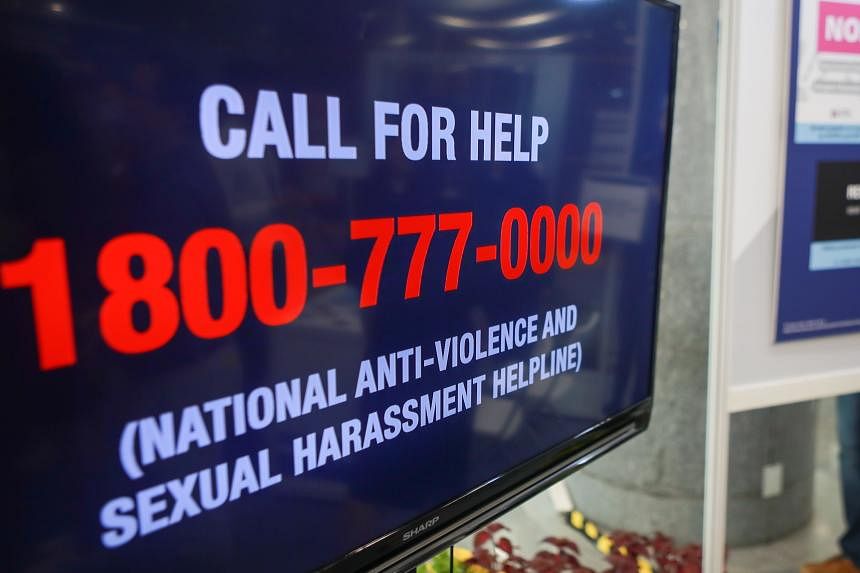SINGAPORE – The community is shaken by the case of a 16-year-old girl sexually abused by a man intending to adopt her, especially social service professionals who worked directly with the teenager, said Minister of State for Social and Family Development Sun Xueling.
The Ministry of Social and Family Development (MSF) will be progressively launching more tools to ensure a more robust and consistent decision-making system for domestic violence, she added.
“This is... to make sure that not only has there been training provided... but that there are standardised assessment tools so that the social service professionals know what the baselines are and under what circumstances to report.”
Ms Sun was responding to four MPs who raised questions in Parliament on Jan 10 about child sexual abuse and safeguards in the adoption process.
“Learning from this episode, I think it is a stern reminder to all of us that we will continue to focus on making sure our social service professionals are up to date, when it comes to training, to recognise family violence, domestic violence, sexual abuse, and to know when to report, (and) what are the symptoms to look out for,” she said.
The questions in Parliament came in the wake of the Nov 28, 2023 sentencing of the man, who volunteered at a children’s home and sexually abused a resident he wanted to adopt. The girl had been placed in the children’s home as she was sexually abused by her father after her mother’s suicide.
After the girl was temporarily placed in the care of the man and his wife during the adoption process, the man repeatedly subjected her to sexual penetration almost every day between September and mid-November 2020.
The case came to light when the girl told her teacher, who alerted the police on Dec 1, 2020. The 39-year-old man was sentenced to 10 years’ jail and nine strokes of the cane after pleading guilty to four counts of exploitative sexual penetration of a minor who is 16 or 17.
On the case, Ms Sun said the children’s home had made every effort to perform due diligence on persons who had contact with the child and to supervise the contact. The social service professionals had also followed up actively with supervised visitations, check-ins and home visits.
No adverse history was found with the man and his wife, she said.
MSF had said previously that despite weekly check-ins with professionals to monitor the girl’s well-being, safety and progress, as well as the couple’s regular sessions with professionals to assess their ability to care for her, no sexual abuse concerns were detected.
“While every effort is made to ensure adopted children enter families that provide a safe environment, it is not possible to predict with absolute certainty how the relationship between an adopted child and the adoptive parent develops,” Ms Sun added.
Beyond social service practitioners, she highlighted the role of members of the public, such as teachers and neighbours, who have more frequent interactions with kids.
She said MSF’s Family and Domestic Violence Awareness Training, part of its Break the Silence campaign, has reached out to 7,550 people. Many were teachers, including those in pre-schools, who were trained on how to spot the signs of family violence, including sexual abuse.
Ms He Ting Ru (Sengkang GRC) asked how teachers are trained to spot the signs and respond to children who have experienced sexual abuse, particularly younger children who may not be able to articulate it.
Ms Sun said teachers are trained to spot signs such as the child appearing withdrawn, having visible marks, being averse to physical contact, having no appetite or losing interest in games, or behaving otherwise differently from their usual selves.
For younger children, she said some social service agencies have play therapy, where kids unable to talk about what happened to them from the first-person perspective can use toys to talk about it from the third-person perspective. This is to protect them from more hurt.
Mr Dennis Tan (Hougang) asked what attributes MSF looks for in individuals looking to adopt children with a traumatic past.
Ms Sun said MSF assesses if prospective adopters are able to meet the child’s complex care needs.
It also considers input from its clinical and forensic psychology services team, which has expertise in dealing with children with traumatic histories.
Ms Nadia Ahmad Samdin (Ang Mo Kio GRC) asked about improvements the children’s home and MSF are putting in place to prevent a repeat of the incident, given that the abuse happened over a prolonged period where the child was receiving social service support.
“When (a child experiencing abuse) decides to open up, there must be a trusted adult nearby for he or she to open up to. And in this case, it was a teacher who... spent time building a nurturing and trusting relationship with a child... whom (the child) confided in,” said Ms Sun.
“So I would say that the most fundamental and perhaps the most comprehensive way of tackling this issue is to raise greater awareness amongst more members of the public, in particular persons who have immediate touchpoints with children,” she said, referring to teachers, neighbours and friends.


